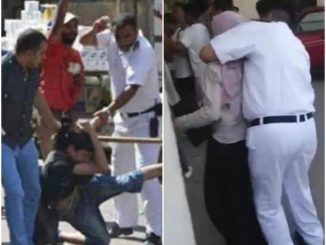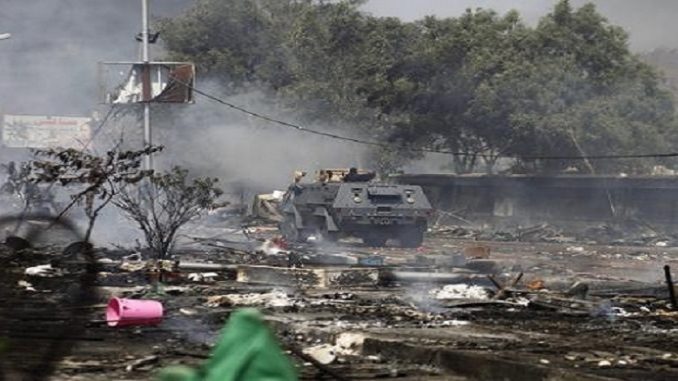
More than half a decade after ‘ Rabaa massacre ‘ the deadly crackdown of supporters of the first democratically elected president Mohamed Morsi, human rights activists still call for a probe.
Six years ago, Egypt witnessed one of the deadliest days for demonstrations in its modern history when security forces killed hundreds of supporters of ousted president Mohamed Morsi.
The dramatic dispersal of the sit-in at Cairo’s Rabaa al-Adawiya Square on August 14, 2013, saw soldiers and police shot dead more than 1000 protesters in a matter of hours.
The bloody crackdown came weeks after Morsi was overthrown by the military following mass demonstrations against his one-year rule.
Egypt’s security forces maintain some of the demonstrators were armed and there were “terrorists” among their numbers.
Despite a wealth of evidence implicating the Egyptian army and police in killing the protesters, no one has ever been brought to trial and the Egyptian government has yet to transparently investigate the massacre.
The government-appointed National Council of Human Rights produced a report on the events, but its findings are at odds with witness accounts and human rights activists.
Since 2013, hundreds of protesters, including leaders of Morsi’s government, have been convicted at mass trials. An Egyptian court in July sentenced 75 people to death for participating in the protest.
Rallies marking the Rabaa killings have met fierce resistance by Egyptian authorities.
What happened?
After massive protests calling for Morsi to step down, the military announced the removal of Egypt’s first democratically elected president on July 3, 2013.
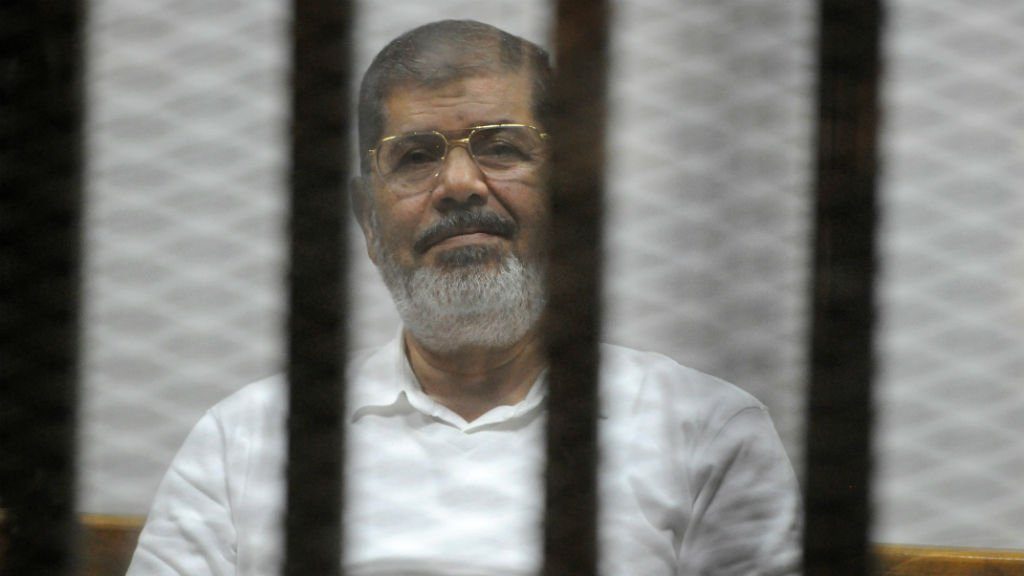
The protests – staged in Tahrir Square one year after Morsi was sworn into office – called for early presidential elections, with demonstrators accusing the president of failing to fulfil his electoral promises.
The now-outlawed Muslim Brotherhood, Egypt’s most popular political group at the time, called for counter-protests at Rabaa al-Adawiya and al-Nahda squares.
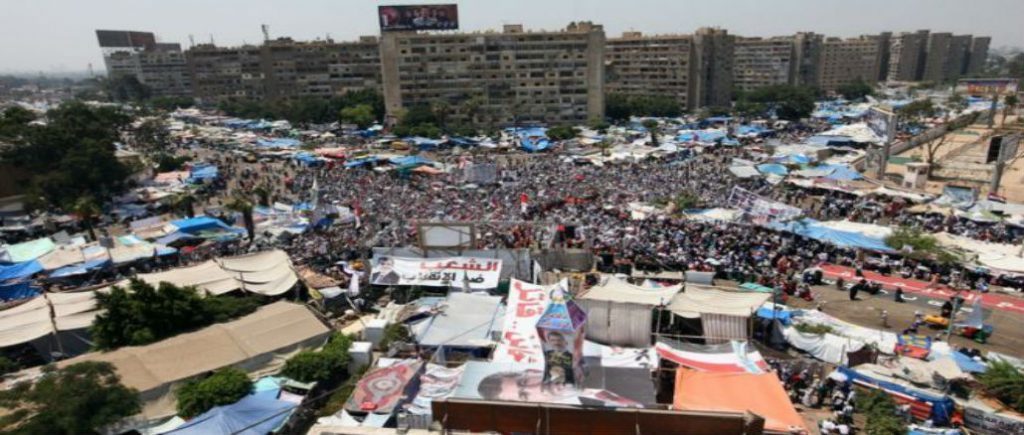
The protests developed into the large-scale sit-in against the military coup.
According to Human Rights Watch (HRW), about 85,000 protesters joined the sit-in, which extended for over 45 days and grew larger and more organised with time.
Protesters slept, ate, prayed, and lived at the square. Many hoped the sit-in would succeed in pressuring the military to restore Morsi to the presidency.
As time passed, supporters of the military across the city grew frustrated with the defiant sit-ins and calls to disperse them came from both largely pro-military private and state-owned media outlets.
The military-backed government, officially ordered the dispersal of Rabaa and al-Nahda on August 14, with armoured vehicles, bulldozers and hundreds of security forces moving in the early hours.
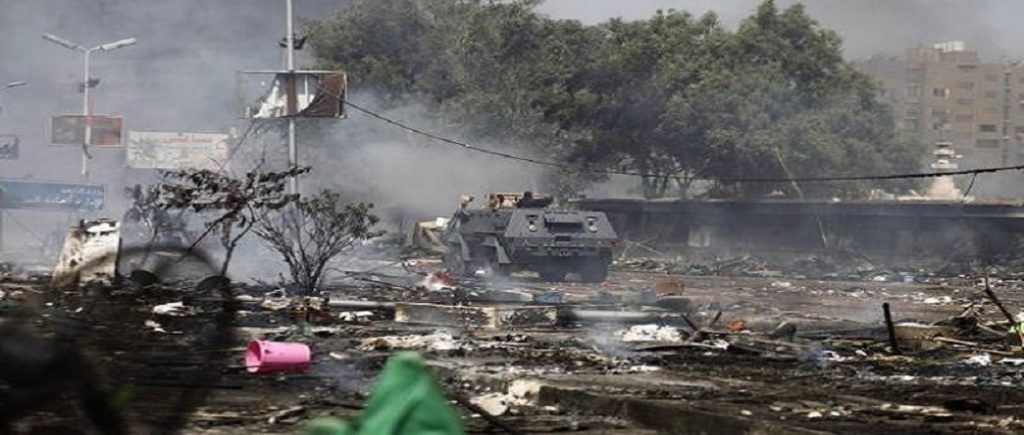
Calls for justice
After a year-long investigation, New York-based HRW documented the events that led to the mass killings, interviewing witnesses and reviewing video footage.
Based on the findings of its 2014 report, HRW concluded the killings “likely amounted to crimes against humanity” and “were part of a policy”.
In a statement on Monday, the rights group called for an international inquiry into the deadly crackdown.
“Five years on from the Rabaa massacre, the only response from authorities has been to try to insulate those responsible for these crimes from justice,” said Sarah Leah Whitson, HRW’s director for the Middle East and North Africa.
“Without justice, Rabaa remains an open wound. Those responsible for the mass killings of protesters shouldn’t count on being able to shield themselves from accountability forever.”
Last June, Egypt’s first democratically elected president Morsi fainted during court session and died afterwards.
The 67-year-old died after fainting during the court session in the Egyptian capital,
Denied medical treatment: Morsi had a history of health issues, including diabetes and liver and kidney disease. He had suffered from medical neglect during his imprisonment, compounded by the poor conditions in jail.
A 2018 report conducted by three British MPs under the Independent Detention Review Panel, warned that the lack of medical treatment could result in Morsi suffering from a “premature death”.
“Our conclusions are stark,” Crispin Blunt and the panel’s chairman said at the time. “The denial of basic medical treatment to which he is entitled could lead to his premature death.”


